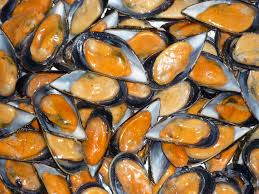FIS reports that up to 12 alerts has set off Italy on account of the Galician mussel since the start of 2016. Yesterday, E. coli was detected above the allowable level in several consignments of bivalve molluscs sent from Spain.
 According to the reports from Italian health authorities to the rapid alert system for food and feed (RASFF), some of the intercepted mussels doubled, tripled and even showed a seven-fold increase of the legal limit allowed of fecal coliform because there were alarms that detected levels amounting to 490, 700 and even 1,700 E. coli per hundred grams of meat, when the legally allowed limit is 230. There is no evidence that the product has reached the market and caused poisoning among consumers and in most cases the problem was solved with the purification of the product, or with the retention of the bivalve mollusc before reaching the market.
According to the reports from Italian health authorities to the rapid alert system for food and feed (RASFF), some of the intercepted mussels doubled, tripled and even showed a seven-fold increase of the legal limit allowed of fecal coliform because there were alarms that detected levels amounting to 490, 700 and even 1,700 E. coli per hundred grams of meat, when the legally allowed limit is 230. There is no evidence that the product has reached the market and caused poisoning among consumers and in most cases the problem was solved with the purification of the product, or with the retention of the bivalve mollusc before reaching the market.
In Galicia, the Department of Marine Affairs is investigating the incident, while downplaying the role if these alarms. From the department, Rosa Quintana explained that the European Commission notifies thousands of food health alerts through the RASFF, “a system of health control authorities to exchange information on measures as carried out to settle the risks.” So, after one of these warnings, a check protocol is activated. And that is what Galicia has done, trying to ascertain whether, as Italy claims, the intercepted mussel did not meet the parameters of zone A (areas in which due to the level of coliform it is not necessary for the mollusks to go through depuration process) and had levels belonging to zone B (which do require this process before marketing the products as fresh). The reports from the department cast doubt on that view and alert Italy as to the polygons macrobiologically classified as areas A and also the Intecmar analysed the samples from these production to check whether they meet the requirements of this classification.
